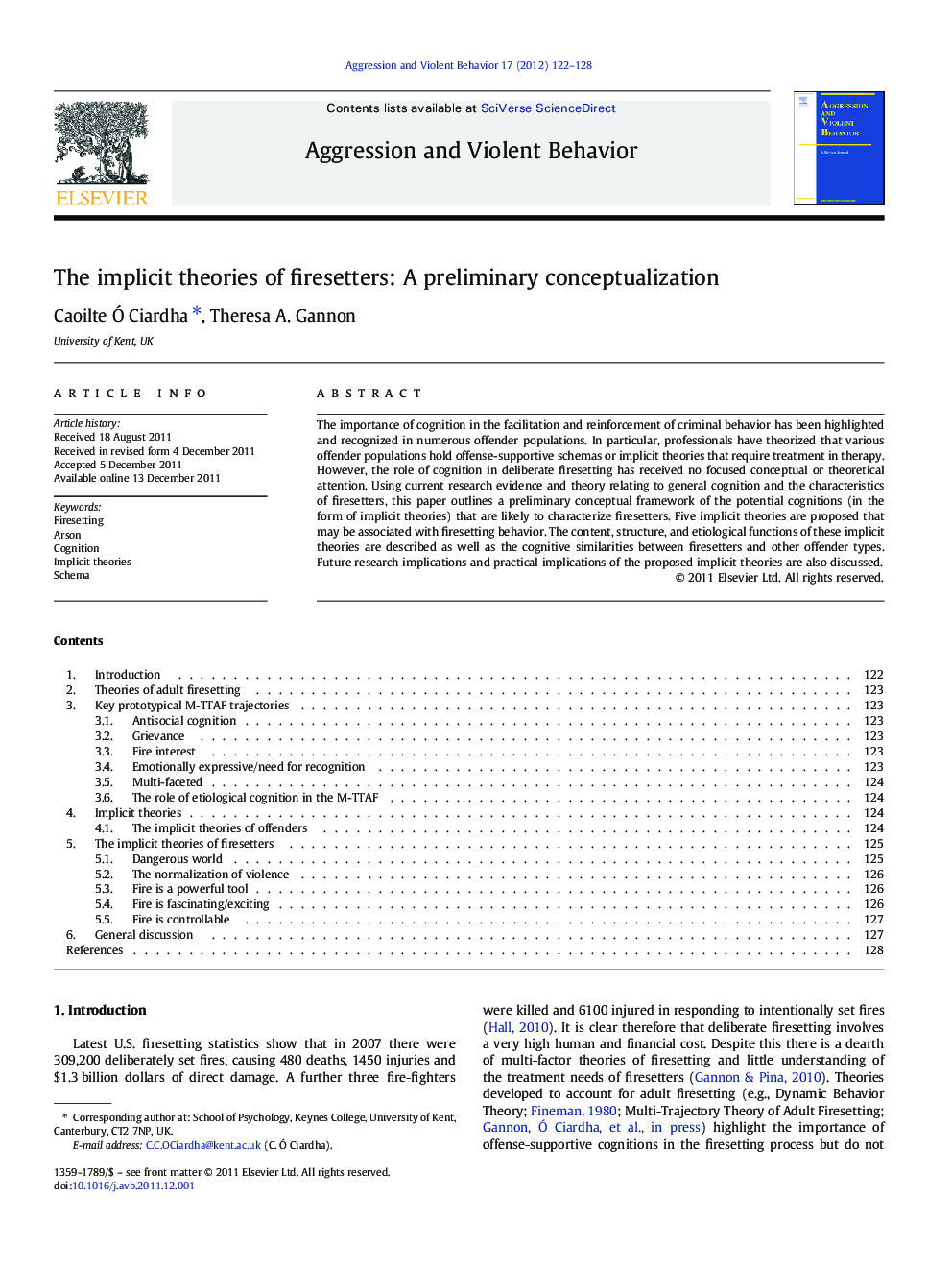| Article ID | Journal | Published Year | Pages | File Type |
|---|---|---|---|---|
| 94785 | Aggression and Violent Behavior | 2012 | 7 Pages |
The importance of cognition in the facilitation and reinforcement of criminal behavior has been highlighted and recognized in numerous offender populations. In particular, professionals have theorized that various offender populations hold offense-supportive schemas or implicit theories that require treatment in therapy. However, the role of cognition in deliberate firesetting has received no focused conceptual or theoretical attention. Using current research evidence and theory relating to general cognition and the characteristics of firesetters, this paper outlines a preliminary conceptual framework of the potential cognitions (in the form of implicit theories) that are likely to characterize firesetters. Five implicit theories are proposed that may be associated with firesetting behavior. The content, structure, and etiological functions of these implicit theories are described as well as the cognitive similarities between firesetters and other offender types. Future research implications and practical implications of the proposed implicit theories are also discussed.
► We develop a preliminary theory of adult firesetters' implicit theories. ► These implicit theories unify preexisting theory and research on firesetters. ► Implicit theories can aid assessment and treatment of adult firesetters' cognition.
